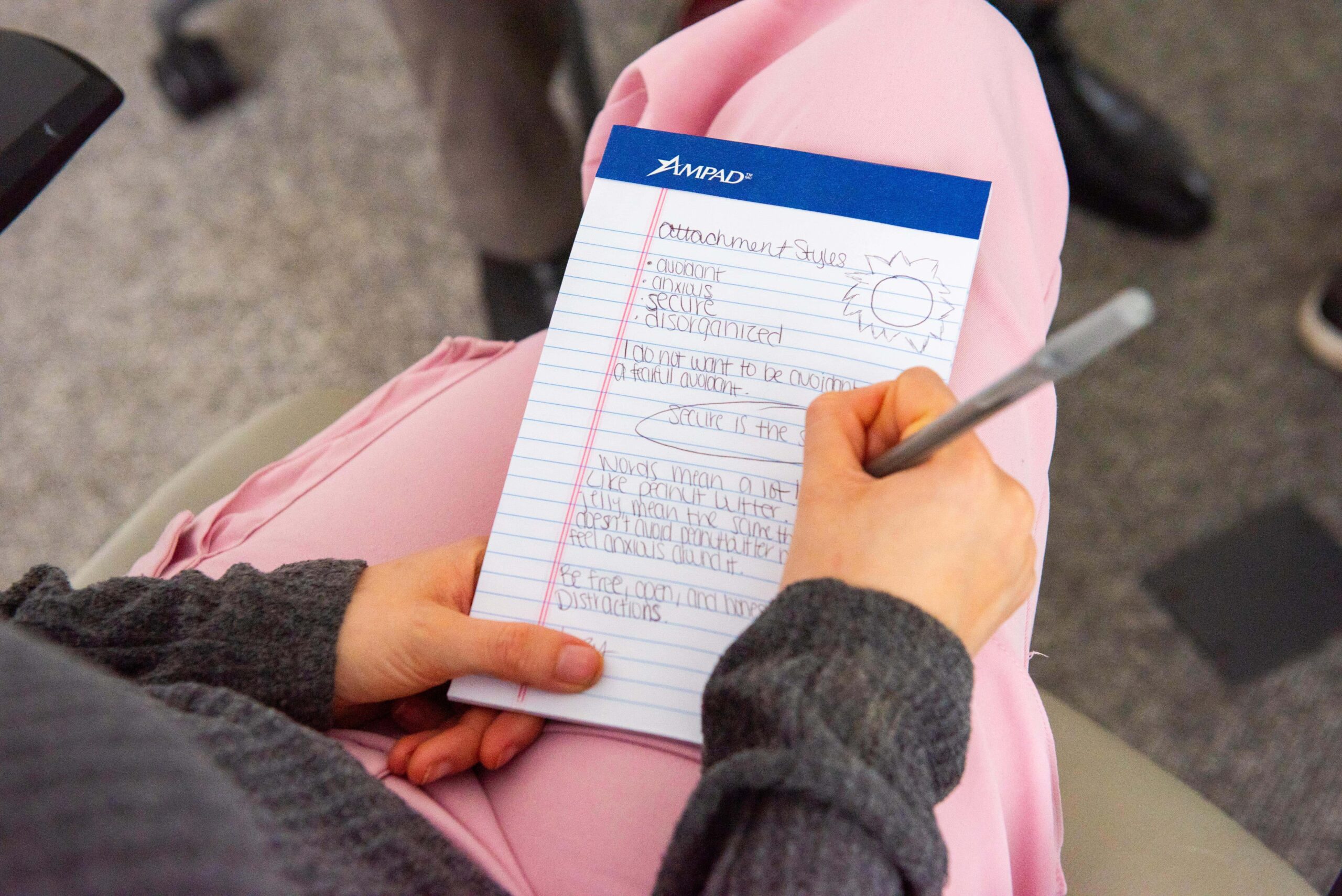What We Treat
DEFINING MENTAL HEALTH
Often, our mental health and our ability to thrive can become burdened by mental health issues that affect our relationships including friends, family, and our spouses, as well as our physical fitness and overall cognitive health.
Mental health affects our judgment with the decisions we make, and our ability to create and strive toward goals, maintain healthy relationships and maintain a focus on tasks in our professional and personal life.

Anxiety
TREATMENT CAN HELP ANXIETY DISORDERS
Most people have experienced anxiety at one time or another. Anxiety is normal and can be caused by any stressful life event. If you’ve ever had a big presentation at work, had a major expense due, gone through a divorce, or received bad news about a friend or family, you’ve probably experienced anxiety.
Sometimes, anxiety can get in the way of your everyday routine. When anxiety gets in the way, you may feel your heart rate increase and you may feel a sudden, intense sense of fear. Everyone experiences anxiety, but when it happens frequently and disproportionately you may have an anxiety disorder.
Anxiety disorders can impact your relationship with your colleagues, spouse, friends and family, and can interfere with your ability to function in your everyday life. Anxiety disorders can cause panic attacks, which are unpleasant episodes of sudden intense fear that comes to a head within minutes.
Bipolar Disorder
TREATMENT CAN HELP BIPOLAR DISORDER
Maybe you’ve heard the term bipolar used to describe someone who has mood swings or often gets moody. This use of the term is an impropriate simplification of symptoms and misunderstanding of a serious medical illness. Bipolar disorder, which used to be categorized as manic depression, is a chronic mental health condition that can cause a person to have dramatic shifts in their energy levels, moods and emotions for prolonged periods of times.
These shifts happen from extreme lows of depression to extreme highs referred to as mania and can last several days or weeks. In a low state, a person can feel hopeless, empty, and sad. Bipolar disorder is different from depression in that a person experiencing a high or manic state can feel overly excited, optimistic, and euphoric.


Depression
TREATMENT CAN HELP DEPRESSION
Depression is more than feeling sad, gloomy or down. Depression is different than grief or disappointment. Depression can last longer and doesn’t require a specific cause like grieving for a loved one who passed away. Depression is a persistent feeling of sadness beyond the normal emotions experienced during difficult life. Depression is a serious medical illness that can occur seemingly without cause and can affect not only your mental wellbeing but your physical health as well.
Depression can negatively affect your ability to function in your everyday life. It can affect your work, home, and professional life. It can affect the way you eat, and how you sleep.
Eating Disorders
TREATMENT CAN HELP EATING DISORDERS
Eating disorders are complex psychological conditions with the potential for serious medical complications. At the Los Angeles Outpatient Center, while eating disorders may not be our primary focus, we treat the whole person and take a collaborative approach to care, utilizing regular consultation to ensure that the impact of the eating disorder is recognized and appropriate recommendations are made to address it.

OCD
OCD TREATMENT
Double checking things is a pretty common thing that most people do, like, “Did I turn the oven off”, or “Did I lock the front door?” What if you feel compelled to triple check or even quadruple check? Obsessive Compulsive Disorder, or OCD, is a specific type of anxiety disorder that is characterized by obsessive thoughts and urges or compulsive, repetitive behaviors.
For instance, checking that the oven is off, then wiping down the counters, then checking that the oven is off, wiping down the oven, then making sure the burners are off before being able to leave the house.
A person with OCD has endures unwanted obsessive thoughts, that are difficult or impossible to ignore. These obsessive thoughts are recurring and typically cause compulsive and habitual activities. A person suffering from OCD feels compelled to perform these activities in order to regulate or reduce their heightened feeling of anxiety.
These obsessive thoughts and compulsive rituals can have a serious effect on a person’s life at home and work. A common compulsion in people with OCD is cleaning, which stems from obsessive thoughts about germs or being dirty. Another is checking locks on doors and windows or making sure the stove is off which stems from feelings of not being safe.


Postpartum Depression
TREATMENT CAN HELP POSTPARTUM DEPRESSION
Postpartum depression is a serious condition that can affect new mothers after childbirth. Signs of postpartum depression include sadness, difficulty sleeping, loss of appetite, and difficulty bonding with your infant. It is important to seek help if you are experiencing these symptoms as they can negatively affect not only your physical and mental health, but also the relationship with your child.
Treatment for postpartum depression may include therapy and/or medication, depending on the severity of the condition. If left untreated, postpartum depression can become worse over time and begin to interfere with day-to-day activities. Finding the right support system is key in helping you cope with this condition and manage it effectively.
Psychosis
TREATMENT CAN HELP PSYCHOSIS
Psychosis is a term used to describe a type of mental illness where a person experiences strange thoughts, emotions, and behavior. It can affect how a person perceives their environment in a way that those sights and sounds may occur differently than how they actually are.


Personality Disorder
TREATMENT CAN HELP PERSONALITY DISORDERS
A personality disorder is a type of mental health disorder that affects how a person views themselves and others. A person with a personality disorder finds it challenging to interact with others in healthy way because they have difficulty relating to people and situations resulting due to their rigid and unhealthy thought patterns.
Diagnosing someone with a personality disorder can be difficult due to individuals not being aware that they have a disorder. Because of their inability to be self-aware about their unhealthy thinking and behavior, when confronted they may come off as narcissistic, moody, and dramatic. They may not think they have a problem, and they may even think the problem is with others.
PTSD
TREATMENT CAN HELP PTSD
Post-traumatic stress disorder, also called PTSD, is a stress-driven disorder that happens when a memory of a past traumatic event like a sexual assault or war, causes recurring mental and physical distress. The main symptoms of PTSD are psychological and can occur concurrently with depression, substance abuse, and anxiety disorders.
A person suffering from PTSD re-experience their trauma through flashbacks, nightmares and intrusive thoughts that can lead to behavioral changes, such as avoiding a place or situation that reminds them of their trauma.


Schizophrenia
TREATMENT CAN HELP SCHIZOPHRENIA
Schizophrenia is a serious mental health disorder that is characterized by its severe symptoms that affect an individual’s emotions, behavior and thinking. Symptoms can include delusions, disorganized speech, and disorganized behavior.
Delusions are beliefs that a person may feel very strongly about, so much so that they won’t change their mind, even if you give them evidence against it. There are many different examples of this, one being that someone or something is controlling your actions such as a newscaster or celebrity is speaking to them through the TV.
Self Harm
TREATMENT CAN HELP SELF-HARM
Self-harm is when someone injures themselves on purpose, often with sharp objects like razors, paper clips, knives and pens. When people self-harm, they are typically making small cuts on their wrists, arms, thighs, and stomachs.


Stress Disorder
TREATMENT CAN HELP ACUTE STRESS DISORDER
Acute stress disorder or ASD is when a person experiences mental health distress immediately after a traumatic event. ASD shares similar causes and symptoms with PTSD but differentiates from PTSD in that it is temporary and typically only lasts 3 to 30 days.
